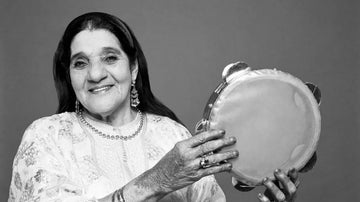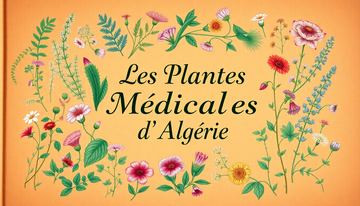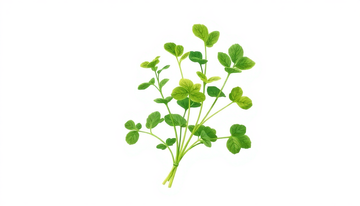Algerian Raï is much more than just a musical genre – it is a true cultural phenomenon that has crossed borders and conquered the world. Its origins date back centuries, rooted in Algeria’s Berber and Andalusian traditions. Today, Raï has become a symbol of Algerian pride and identity, celebrated on international stages.
The Origins of Raï
The roots of Raï lie in the ancient musical traditions of Algeria. Born in the 1920s in Oran, this popular genre draws inspiration from Bedouin songs, Andalusian music, and Berber rhythms. The first Raï singers, known as "cheikhs" and "cheikhas," played a crucial role in the birth and spread of this unique musical style.
Traditional Raï and the Cheikhs/Cheikhas
The cheikhs and cheikhas were iconic figures in traditional Raï. These itinerant artists would roam the streets of Oran, performing songs often with provocative and subversive themes. Their musical style blended local influences with elements of popular poetry, thus creating the foundations of Raï.
The Evolution of Raï (1970s-1980s)
Over the decades, Raï underwent a major transformation. In the 1970s and 1980s, a new generation of artists, the "Cheb" and "Cheba," brought the genre to a more modern sound while still retaining its traditional roots.
The Emergence of the "Cheb" and "Cheba"
The Cheb and Cheba, young male and female singers, introduced musical innovations to Raï. They incorporated electronic instruments while preserving the characteristic rhythms and melodies of the genre. This evolution allowed Raï to reach a wider audience, both in Algeria and internationally.
Iconic Figures of Raï
Among the artists who have shaped the history of Raï, three names stand out: Cheikha Rimitti, Cheb Khaled, and Rachid Taha.
Cheikha Rimitti: Pioneer of the Genre
Known as the "Mother of Raï," Cheikha Rimitti played a pivotal role in the birth and spread of the genre. Her bold songs and energetic performances helped shape the identity of Raï.
Cheb Khaled: The "King of Raï"
Cheb Khaled, also known as the "King of Raï," is undoubtedly one of the most influential artists of the genre. His international hits, such as "Didi" and "Aicha," brought Raï to the global stage.
Other Influential Artists
Other Raï singers, such as Chaba Fadela, Cheb Sahraoui, and Rachid Taha, have also made significant contributions to the history of the genre. Their musical innovations and artistic commitment helped secure Raï's international recognition.
Raï on the International Stage
After establishing itself as a cornerstone of Algerian culture, Raï crossed borders to conquer the world. In the 1990s, the export of the genre allowed it to reach a larger audience.
Success in France and the Arab World
In France, Raï achieved resounding success, thanks in part to artists like Cheb Khaled and Faudel. Raï also found its place in the Arab world, becoming a true musical reference.
Global Recognition (Grammy Awards)
Raï's ultimate recognition came in 1999 when Cheb Mami won a Grammy Award for his collaboration with Sting. This distinction marked the official recognition of Raï on the international music scene.
Fusion and Innovation
Beyond its traditional roots, Raï opened up to other influences, giving rise to hybrid and innovative forms.
Raï Rock and Other Musical Fusions
Artists like Rachid Taha explored the possibilities of blending Raï with other genres, such as rock or world music. These experiments helped evolve Raï while preserving its essence.
New Generation Artists
The new generation of Raï singers, such as Sofiane Saidi and Houari Benchenet, continue the quest for innovation, merging Raï with contemporary styles while honoring its origins.
Themes and Social Impact
Raï is not just a musical genre, it is also a vehicle for social and cultural expression. The themes addressed in Raï songs reflect the realities of Algerian society.
Topics in Raï Songs
Raï songs often deal with taboo subjects, such as sexuality, individual freedom, and social inequalities. This boldness has made Raï a tool for emancipation and protest.
Influence on Algerian Society
Beyond its artistic dimension, Raï has had a significant impact on Algerian society. It has contributed to affirming national identity and challenging social norms.
The Role of Women in Raï
Women have played a crucial role in the history of Raï, such as Cheikha Rimitti. Their presence and involvement have helped challenge gender stereotypes in Algerian music.
Raï Today
Today, Raï holds a prominent place in Algerian musical heritage. Despite challenges and changes, this genre remains a strong symbol of the country's culture and identity.
Place in Algerian Musical Heritage
Raï is now recognized as an essential component of Algeria's cultural heritage. It is celebrated and preserved while continuing to evolve.
Challenges and Future Prospects
Although Raï has achieved worldwide fame, it faces new challenges, particularly related to globalization and the evolution of musical practices. However, the new generation of artists is committed to preserving this unique legacy.
Conclusion
Algerian Raï is much more than a musical genre – it is a true cultural phenomenon that has crossed borders and conquered the world. Its ancient origins, dynamic evolution, and social impact make it an indispensable element of Algerian heritage. Today, Raï continues to shine, proudly representing Algeria on the international stage.






